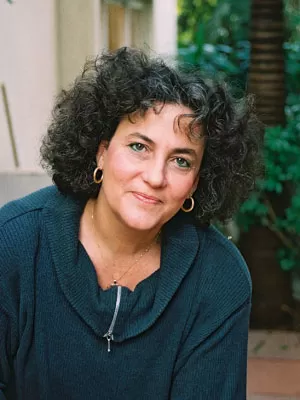Nov 8, 2006 - 12:00 pm
Partita for Strings (Terezín, 1944)
Gideon Klein (b. P?erov 1919, d. Fürstengrube 1945)
In 1940, Gideon Klein was a star twentyone-year-old student in musicology at Charles University in Prague and in piano and composition at the Prague Conservatory of Music. Poised for the next stage of a promising career, he was about to leave for London on a scholarship to the Royal Academy of Music, but as a Jew in Nazi-occupied Czechoslovakia he was expelled from his studies and denied permission to travel. For a brief period he attempted performing under the Czech pseudonym Karel Vranek, but was deported to Terezín in December 1941. He spent nearly three years there, first working in the Aufbaukommando, a construction unit charged with transforming the fortress into a concentration camp.
The young Gideon Klein buoyed the spirits of some of the older musicians and composers in Terezín. Along with Hans Krása, Pavel Haas and Viktor Ullmann, Klein helped to develop the camp's musical life, and became one of its principal organizers. He was active as composer, coach and pianist, performing in recitals, chamber ensembles and productions of Terezín's major musical works.
The Partita for Strings is Vojtech Saudek's 1990 arrangement of the String Trio that Klein composed in Terezín only nine days before his deportation to Auschwitz in October 1944. The work's vibrant energy is especially remarkable when one considers that Klein wrote it at a time when he probably knew of his own doom. All three movements incorporate folk elements, and the extended slow middle movement is a set of variations on a peasant song that Klein remembered from his Moravian childhood. The song included these lyrics: "Janicek, take your rifle and shoot the goose flying over the tower; farewell Janicek, a hundred times."
Rodas Recordada (2005)
Sid Robinovitch (b. Brandon, Manitoba, Canada, 1942)
Poetry by Guillermo Díaz-Plaja (b. Lorca, Murcia, Spain 1909, d. Barcelona 1984)
United States Premiere
It was the summer of 1933. twentyfour-year-old Guillermo Díaz-Plaja, one of a group of young Spanish scholars and writers were canvassing the Mediterranean's Sephardic communities to collect instances of Hispanic folklore. On the island of Rhodes, Diaz-Plaja met and interviewed a Sephardic lady who called herself "Mazaltó (Mazaltov) de Jacob Israel." From her, he recorded the ballad of the "Three Doves," inscribing the account of the "romance" in his notebook.
In the early 1970s, Guillermo Díaz-Plaja, a member of the Royal Spanish Academy, literary historian, and author, returned to Rhodes and the scene of a long-ago tragedy: After the Allies took Italy in 1943, the Germans occupied Rhodes. On July 23, 1944, they deported to Auschwitz the 1, 673 Sephardic Jews of Rhodes. All but 151 would die. Diaz-Plaja tried to retrace his steps to where Mazaltó de Jacob Israel lived, on the street threading the old "judería" (Jewry), named now the "Street of the Jewish Martyrs." Stunned by the change, he wrote a poem, weaving memories of his first visit, hearing the ballad of the "Three Doves," with his shock and despair at the community's decimation.
In 1979, composer Sid Robinovitch visited Guillermo Diaz-Plaja in Barcelona. The poet believed that Mazaltó had perished. To much surprise, in the process of researching this ballad with the help of Lilly DeJaen of Seattle's Sephardic community, we discovered that this poignant story has one chapter with a happy ending. In fact, the U.S. premiere of Rodas Recordada revealed an arc of history reaching from Rhodes to Seattle. Mazaltó de Jacob Israel had not been in Rhodes to be deported, making her one of the few who survived from the decimated Rhodes community. She had had two sons and a daughter, Rosa, who had come to Seattle. Rosa's son Ike Alhadeff went to Rhodes in 1939 to bring his grandmother back to Seattle. (Later he would be a B-17 pilot with the 398th Bombardment Group that flew on D-Day.) From 1939 until her death in 1945, Mazaltó lived in Seattle.
* Notes by Mina Miller © 2007 Music of Remembrance
Letters Weeping in Fire (2003)
Aharon Harlap (b. Winnipeg, Manitoba, Canada, 1941)
Poetry by Yaakov Barzilai (b. Hungary 1933)
United States Premiere
Aharon Harlap offers the following remarks:
The song cycle Letters Weeping in Fire was composed at the invitation of Harvey Bordowitz, music director of the Herzlia Chamber Orchestra, whose idea it was to incorporate the motto, "They that start by burning books will end by burning men," a quotation from the German-Jewish author and poet Heinrich Heine's (1797-1856) play Almansor (1821). This quotation became a prophecy of the Nazi Holocaust, beginning with the burning of books of Jewish content in 1933, immediately after Hitler's rise to power. The entire cycle consists of five poems by Yaakov Barzilai, beginning with "Fire in the Town Square," a direct reference to Heine's quotation, and with the use of a marching song-composed to a text by an SA officer by the name of Horst-Wessel and sung by the Nazis during book burnings and at Nazi march demonstrations throughout Germany-to emphasize the drama of the book-burning. This same theme is also quoted partially in the third song, as a poignant reminder of the Nazi regime. Songs 2 - 5 deal with the Holocaust in terms of the innocence of children and their eventual extermination.
Shtiler, Shtiler (1995)
Mode'Ani' (1995)
Zeks Yiddishe Lider un Tantz from "The Golem" (1997)
Betty Olivero (b. Tel Aviv, Israel, 1954)
Betty Olivero offers the following remarks:
Northwest Boychoir
Mode' Ani' is a Jewish prayer recited upon awakening in the morning to thank the Creator for breathing the soul into the body once again. In this work, only the first part of the prayer is heard. The voice is that of a Holocaust survivor, horrified, after many years of agony and misfortune, at having forgotten the rest of the prayer that always used to come as naturally to him as breathing.
Shtiler, Shtiler - Eleven year-old Alex Wolkoviski wrote a prize-winning song for a contest in the Vilna ghetto, with words added by Shmerke Kaczerginski. In the style of a lullaby, the song asks the children to be quiet and endure the dangers and frustrations of ghetto life. It promises them that they will be freed in time and allowed to celebrate as they wish. Alex Wolkoviski, known today by the name of Tamir, still works as a musician in Israel.
Der Golem: Zeks Yiddishe Lider un Tantz is the second movement of the adaptation from a score written to accompany Paul Wegener's 1920 silent expressionist film Der Golem: Wie er in die Welt kam. The work had its premiere in 1997, with clarinetist Giora Feidman and the Arditti Quartet, at a screening at the Silent Film Festival in Vienna. This abridged version of the original score is intended for concert performances, and preserves the main musical themes and motifs associated with the film's various characters and scenes from the Golem legend: the creation of the Golem by Rabbi Löw; the love scenes of the Rabbi's daughter and a young courtier; the destruction of the emperor's palace; the apocalyptic fire that consumes the town's squares; the crowd praying and shouting for forgiveness and deliverance in Synagogue. Ecstatic Freylekh klezmer musical sections accompany the village scenes, while the traditional melody Place Me Under Thy Wing appears as a motto tune at the film's two most dramatic moments: first, when the Rabbi Löw succeeds in breathing the spirit of life into the Golem; later, to accompany the expressions of warmth and longing in the Golem's face when a young girl approaches offering him a flower.




